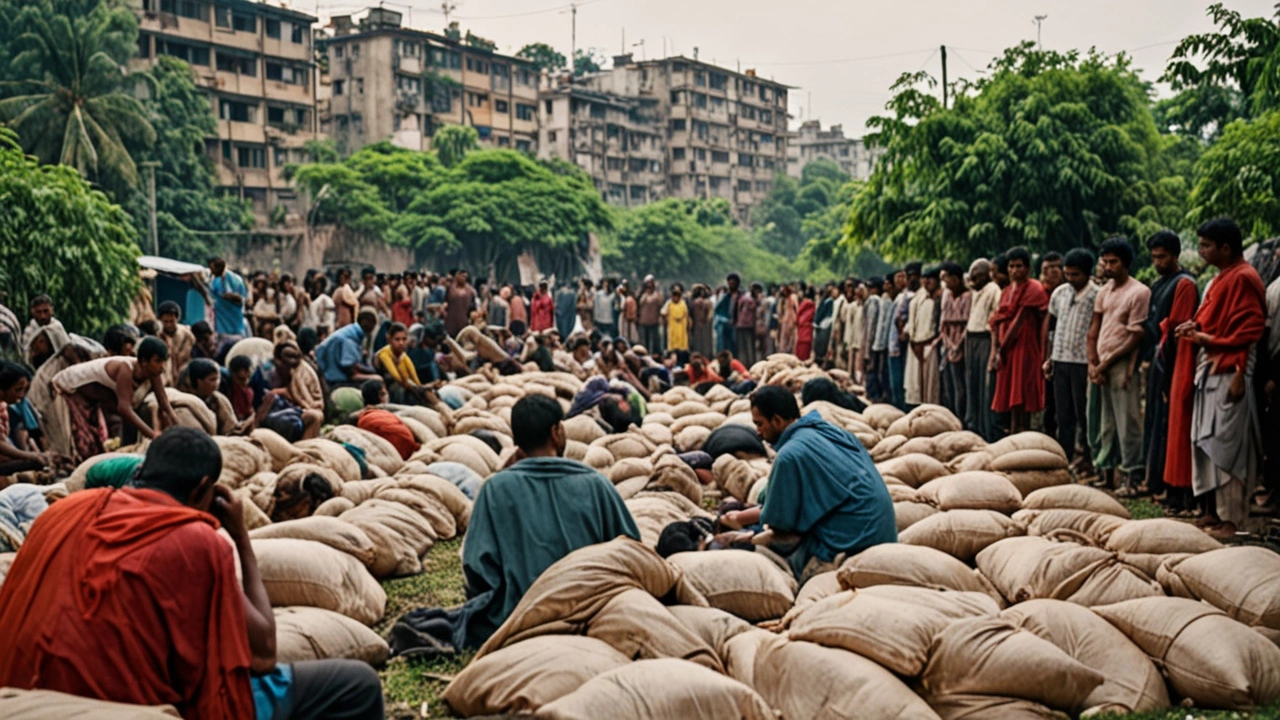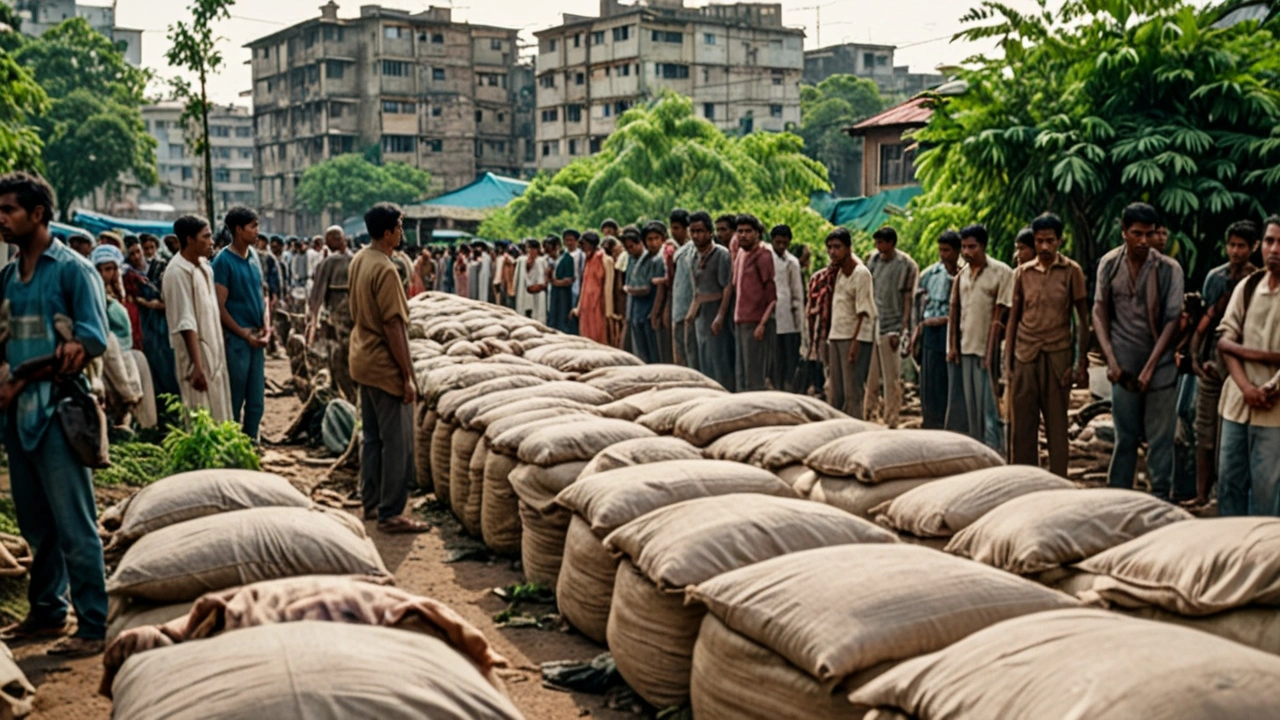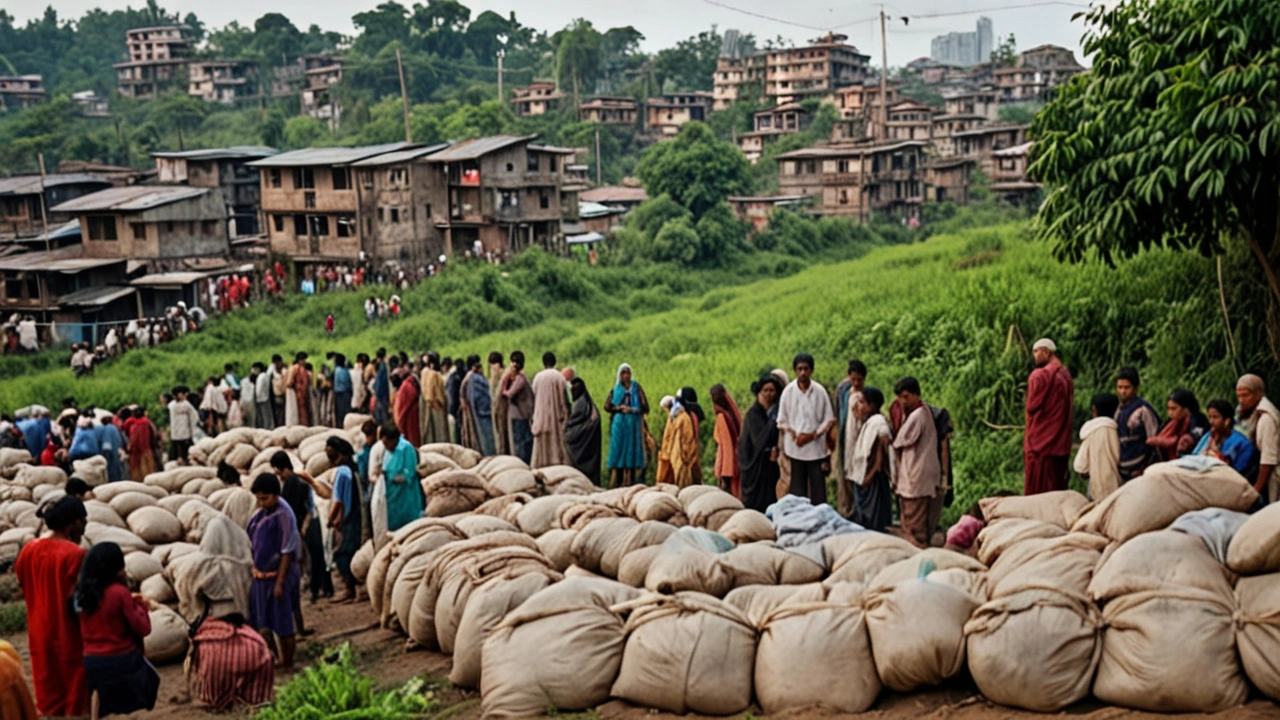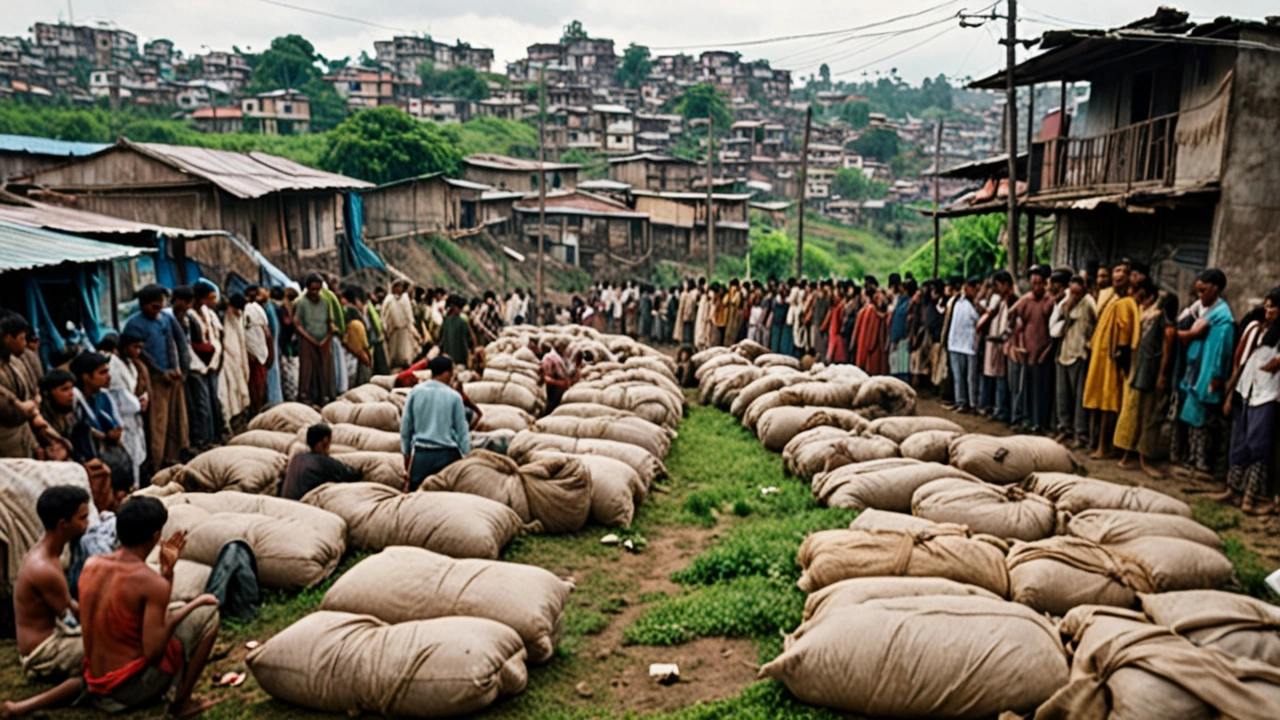Shocking Discovery at Kware Dumpsite
The scene at Kware dumpsite on July 12, 2024, was grim and heart-wrenching. Human rights activists found bodies wrapped meticulously in green sacks, some dismembered. These were not just bodies; they were human lives reduced to mere bundles of fear and pain. The Mukuru Community Justice Center, an organization actively championing the rights of the marginalized, played a pivotal role in uncovering this macabre scene. Their discovery thrust Mukuru Kwa Njenga slum into the spotlight for all the wrong reasons - not just as a locale struggling with poverty but now as the setting for a gruesome uncovering that has shocked Nairobi and raised serious questions about the dark underbelly of the city.
Repercussions of the Finance Bill Protests
The context of these startling discoveries cannot be ignored. In recent months, Kenya has seen a wave of protests against the Finance Bill. What began as demonstrations against fiscal policy escalated into widespread unrest, marked by violence, chaos, and tragically, over 40 deaths. These protests were a backdrop to rising tensions and, as it now appears, an increase in mysterious disappearances and abductions. The discovery at Kware dumpsite is the latest in this unsettling series of events, pointing to a grim pattern that raises alarming questions. Are these incidents random acts or part of a larger, more sinister scheme?

Calls for Accountability
The Independent Policing Oversight Authority (IPOA) has been inundated with complaints. Ten complaints were received recently, with eight individuals found alive but marred by allegations of harassment and torture. Their testimonies paint a stark, disturbing picture of systemic issues within the National Police Service. One name that stands out in particular is Joseph Mwangi, who remains missing. His continued absence is a haunting reminder of the peril faced by many in the current climate. The pressure is now on the police, specifically Inspector General Japhet Koome, as calls for accountability and transparency intensify. The public demands answers; they need to know the truth about what is happening behind the scenes.
Speculation and Theories
The circumstances surrounding the deaths of those found at Kware dumpsite remain a hotbed of speculation. Local residents, activists, and even authorities are scrambling for answers. Were these people targeted for their opposition to the Finance Bill, or was this the work of a rogue element attempting to capitalize on the chaotic climate? There are no easy answers, and each theory carries its weight of fear and paranoia. The discovery of dismembered bodies wrapped so methodically hints at calculated and intentional acts rather than random violence, adding further layers to this already intricate horror.

The Role of Human Rights Groups
Human rights groups like the Mukuru Community Justice Center are playing a crucial, albeit perilous, role in highlighting these injustices. They act as the voice for the voiceless, bringing to light occurrences that might otherwise disappear into the shadows. Their work is fraught with danger, especially in a volatile environment where speaking out can have severe consequences. Despite the risks, they continue to champion the cause, understanding that without their intervention, these stories might never see the light of day. The discovery at Kware is, in many ways, a testament to their unyielding dedication to justice and accountability.
The Broader Implications
The implications of these events extend far beyond the bounds of Mukuru Kwa Njenga slum. They highlight a national issue, one that speaks to the heart of governance, law enforcement, and human rights. Kenya is at a crossroads, grappling with internal strife and a growing distrust in authorities tasked with protecting its citizens. The global community is also watching, as these incidents challenge Kenya's image on the international stage. How the country addresses these disturbing occurrences could set the tone for its future. Will there be action and reform, or will these tragic discoveries be buried and forgotten?

What Lies Ahead
As the investigations continue, there is a collective hope that justice will prevail. The IPOA's appeal to eyewitnesses to come forward is a step in the right direction, signaling a commitment to uncover the truth. However, the path ahead is fraught with challenges. The local community's cooperation and the broader public's vigilance will play critical roles in ensuring that these incidents are neither repeated nor forgotten. The discovery at Kware dumpsite is a stark reminder of the perils that still lurk, but it is also a clarion call for justice, accountability, and reform. Kenya stands at a precipice, and how it responds to these dark revelations will define its future trajectory.
Further Investigation Needed
The involvement of independent bodies and the international community might be necessary to uncover the whole truth. Transparency and accountability from the police and other relevant authorities are key. The need for a comprehensive inquiry into the events surrounding these mysterious deaths is apparent. For now, the sight of those green sacks at Kware dumpsite remains a haunting image, a silent plea for justice and truth in a world that too often looks away.

